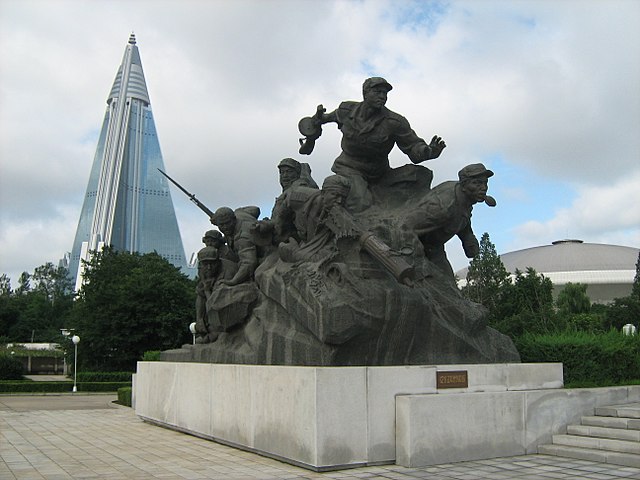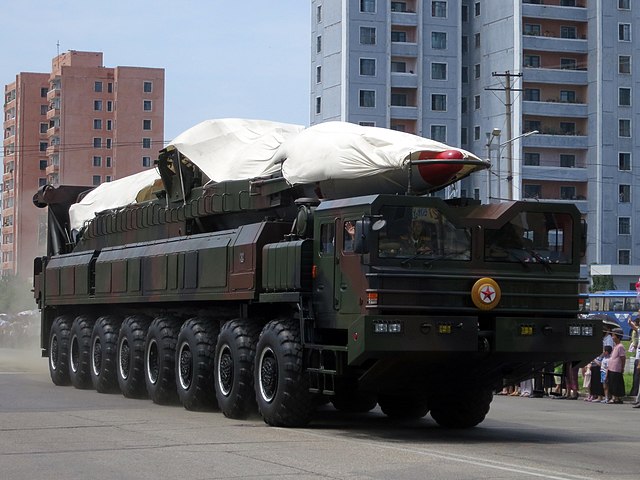The Korean conflict is an ongoing conflict based on the division of Korea between North Korea and South Korea, both of which claim to be the sole legitimate government of all of Korea. During the Cold War, North Korea was backed by the Soviet Union, China, and other allies, while South Korea was backed by the United States, United Kingdom, and other Western allies.
The Korean DMZ, viewed from the north
U.S. Military Advisory Group Headquarters, South Korea, c. 1950
The Korean War Memorial in Pyongyang, North Korea, with the pyramidal Ryugyong Hotel in the background
U.S. planes bombing Wonsan, North Korea, 1951
North Korea and weapons of mass destruction
North Korea has a military nuclear weapons program and, as of 2024, is estimated to have an arsenal of approximately 50 nuclear weapons and sufficient production of fissile material for six to seven nuclear weapons per year. North Korea has also stockpiled a significant quantity of chemical and biological weapons. In 2003, North Korea withdrew from the Treaty on the Non-Proliferation of Nuclear Weapons (NPT). Since 2006, the country has conducted six nuclear tests at increasing levels of expertise, prompting the imposition of sanctions.
Military parade in Pyongyang, 2015 featuring soldiers with CBRN equipment
North Korea's ballistic missile
Kim Jong Un, with what North Korea claims is a miniaturized silver spherical nuclear bomb, at a missile factory in early 2016.
5 MWe experimental reactor at Yongbyon Nuclear Scientific Research Center








